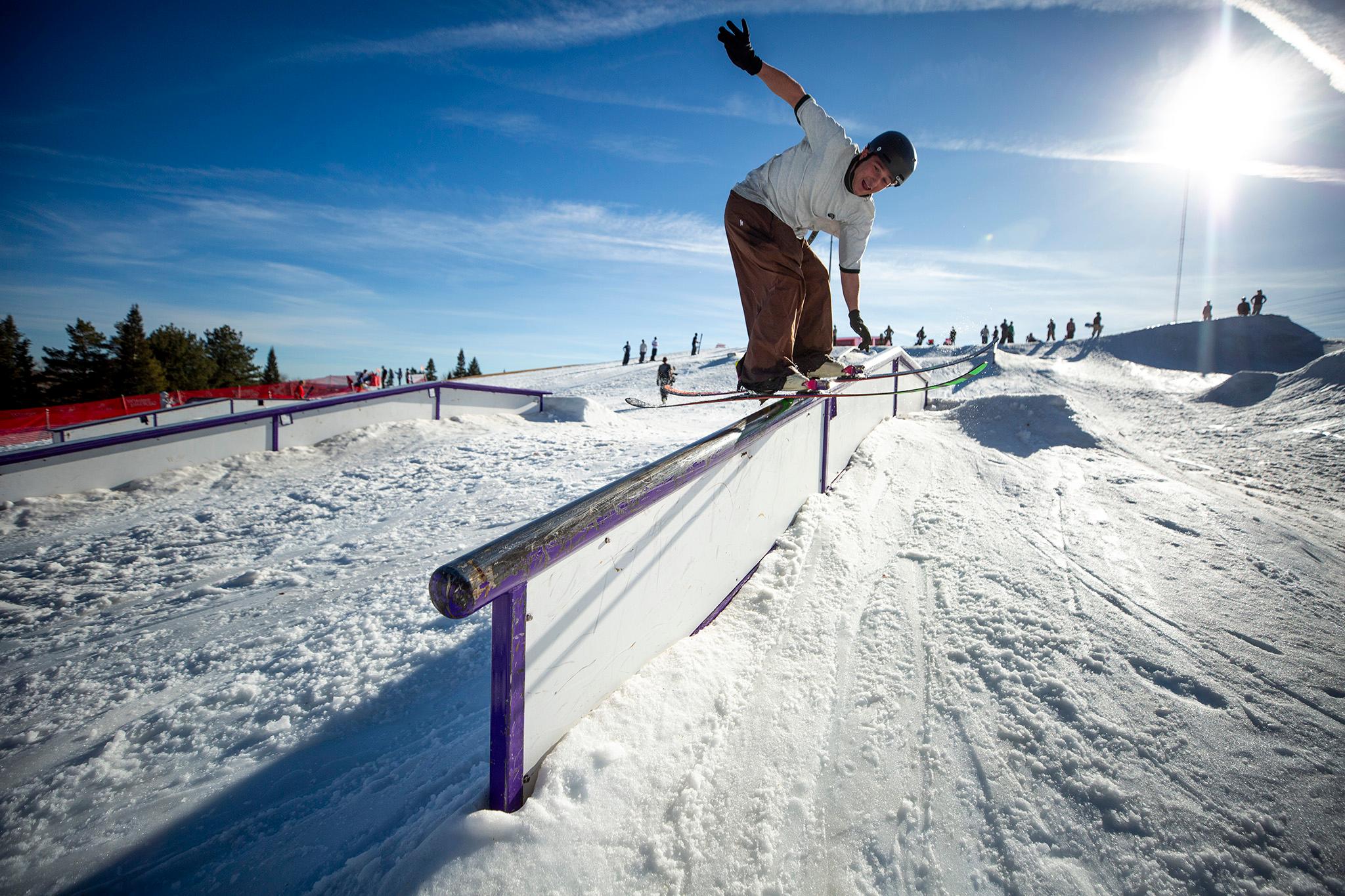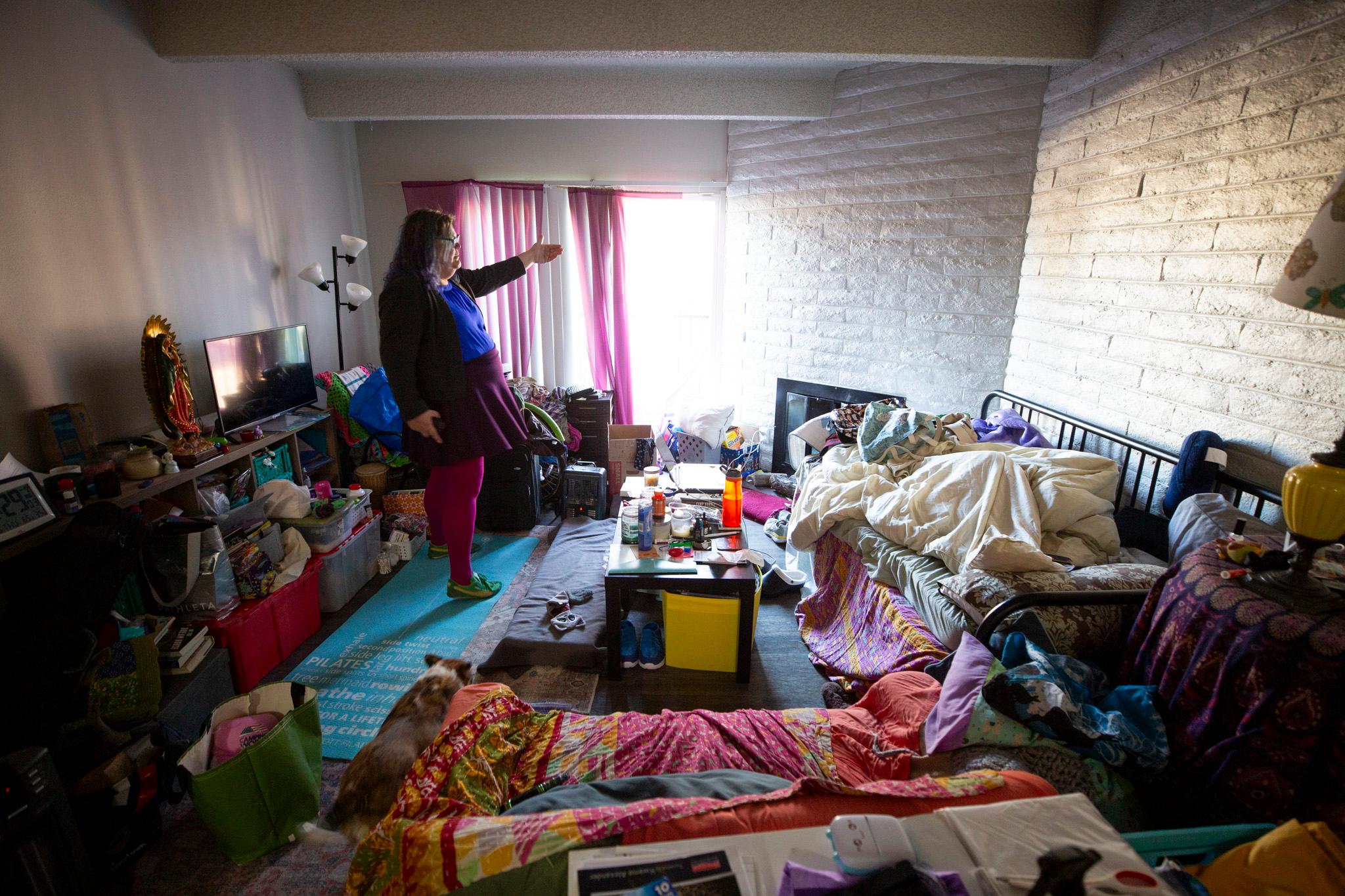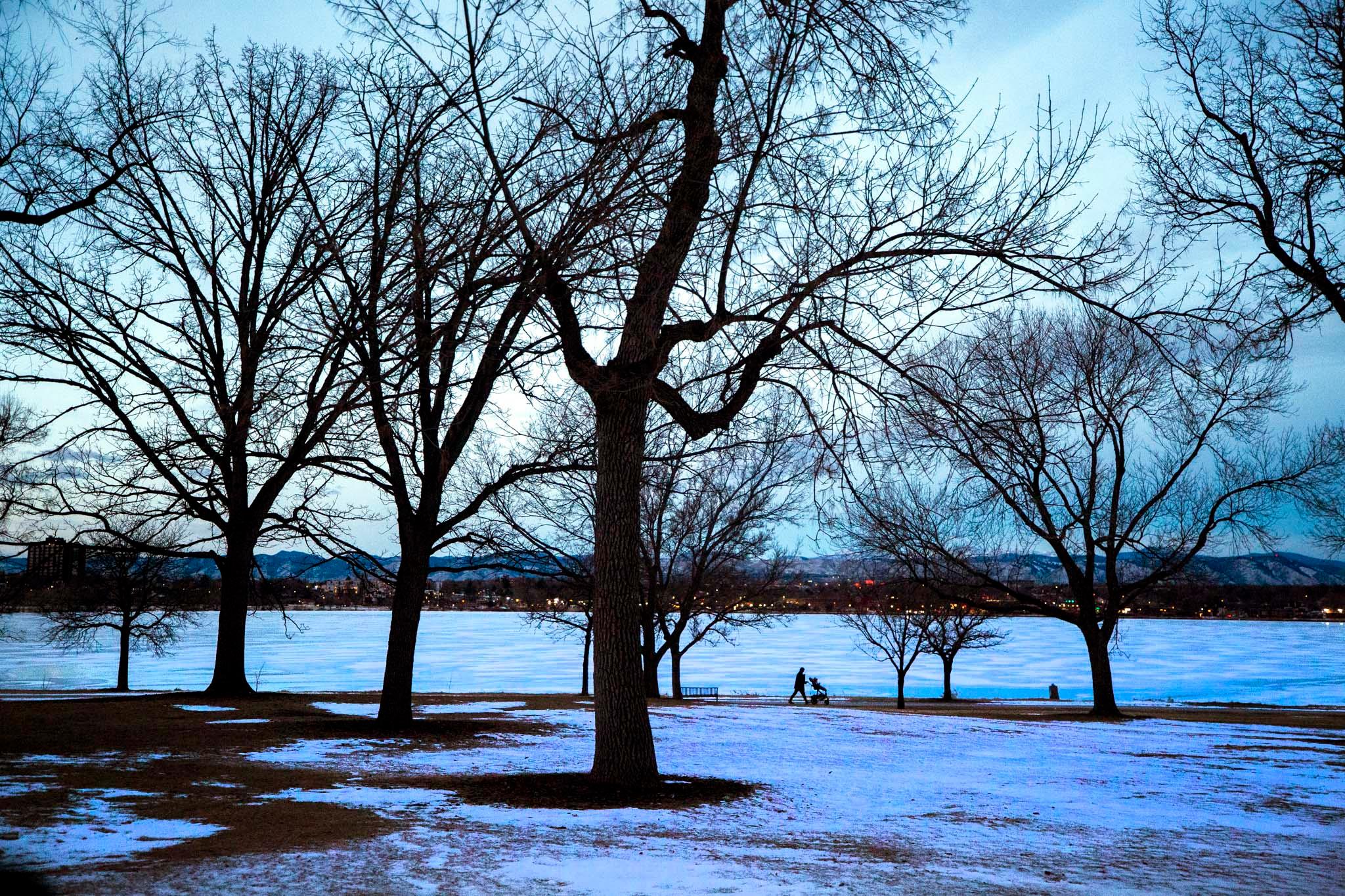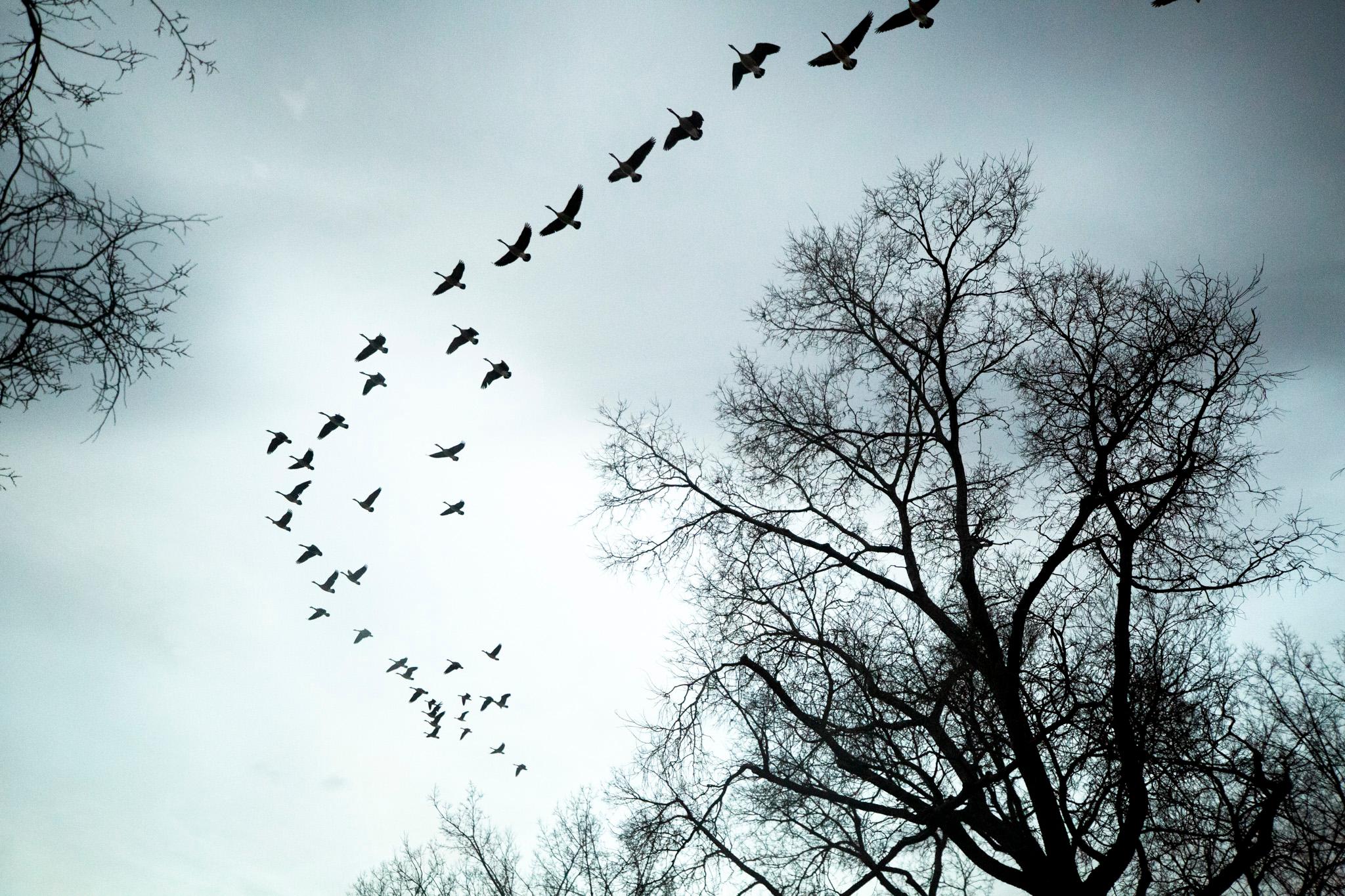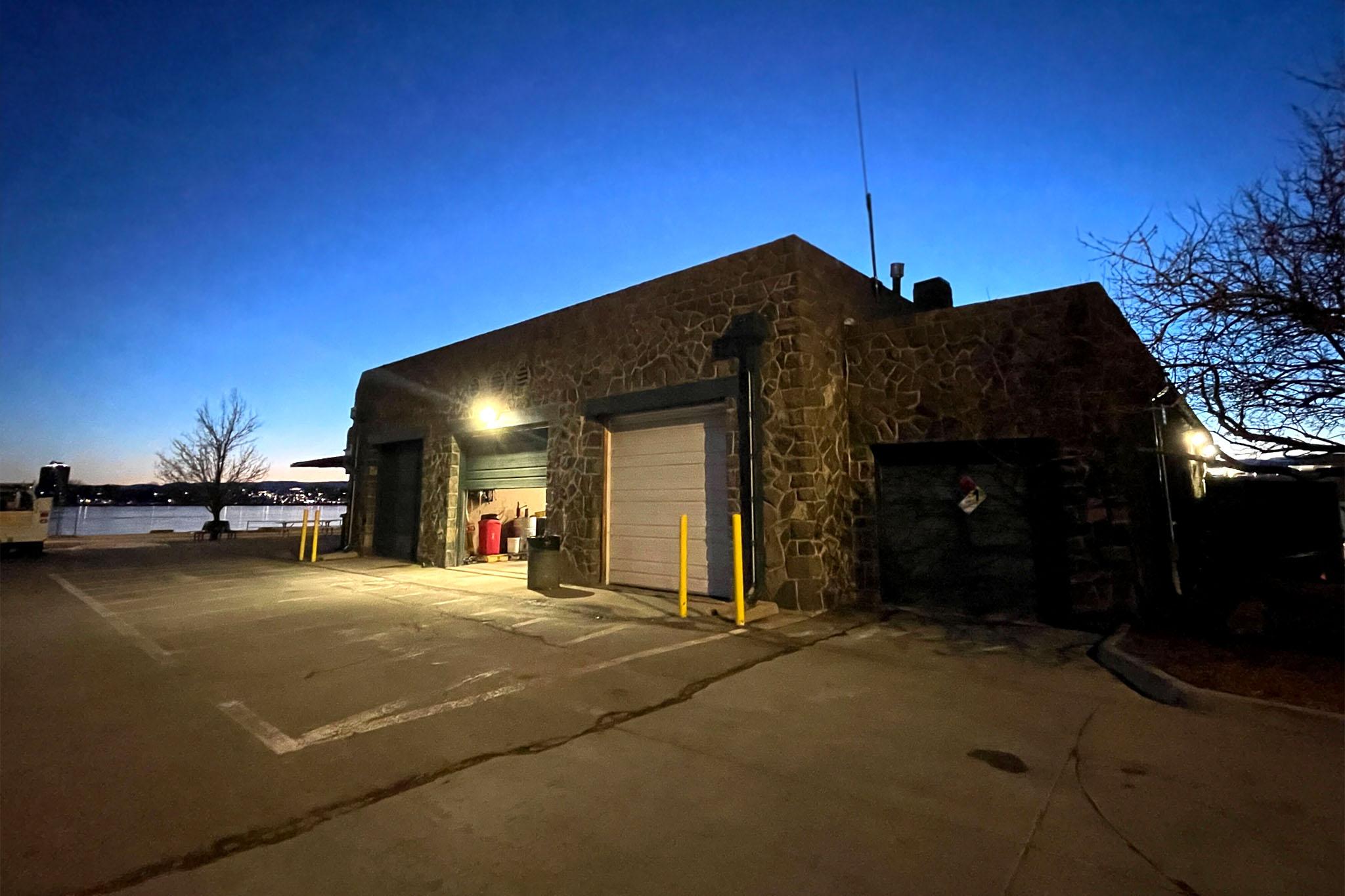Pickleball-loving Denverites may have received sour news when they learned several pickleball courts would be closing and that no new ones would be built just yet. But instead of being silent, they're swinging back.
Attorney Hollynd Hoskins has filed an administrative appeal to the Parks and Recreation Advisory Board, arguing that the closure of pickleball courts and the rescission of proposed new courts excludes pickleball players from certain parks, the decision violates municipal code rules regarding proper notification and DPR's reasoning contradicts advisement from other city departments.
"This is a novel experience," Hoskins said. "We're sensitive to residents because we are residents and homeowners. We are sensitive to their right to private use and enjoyment of their property, but this was not done correctly."
Pickleball is the fastest growing sport in America, but as Denver knows all too well, when things grow fast here, it's hard to keep pace.
In the case of pickleball, Denverites' love for the sport grew exponentially during the pandemic because the game, a cross between tennis and ping pong, is simple to learn and easy on the body. It was also a new outlet for folks to get outside when social distancing was the norm, making the love for the sport deeper than just the game.
"We were in total lockdown for a long period of time. People started to get a little stir crazy and go out of their houses...and pickleball fell into a safe space," said Natalie Hughes, a Congress Park pickleball player. "Pickleball bridges all of the societal gaps. That is the most important thing about pickleball is that it exposes us to tons of different abilities, ages, ethnicities, all that stuff is swept aside and all we do is share resources. I can't think of any other community in the world. Any other sport that provides that."
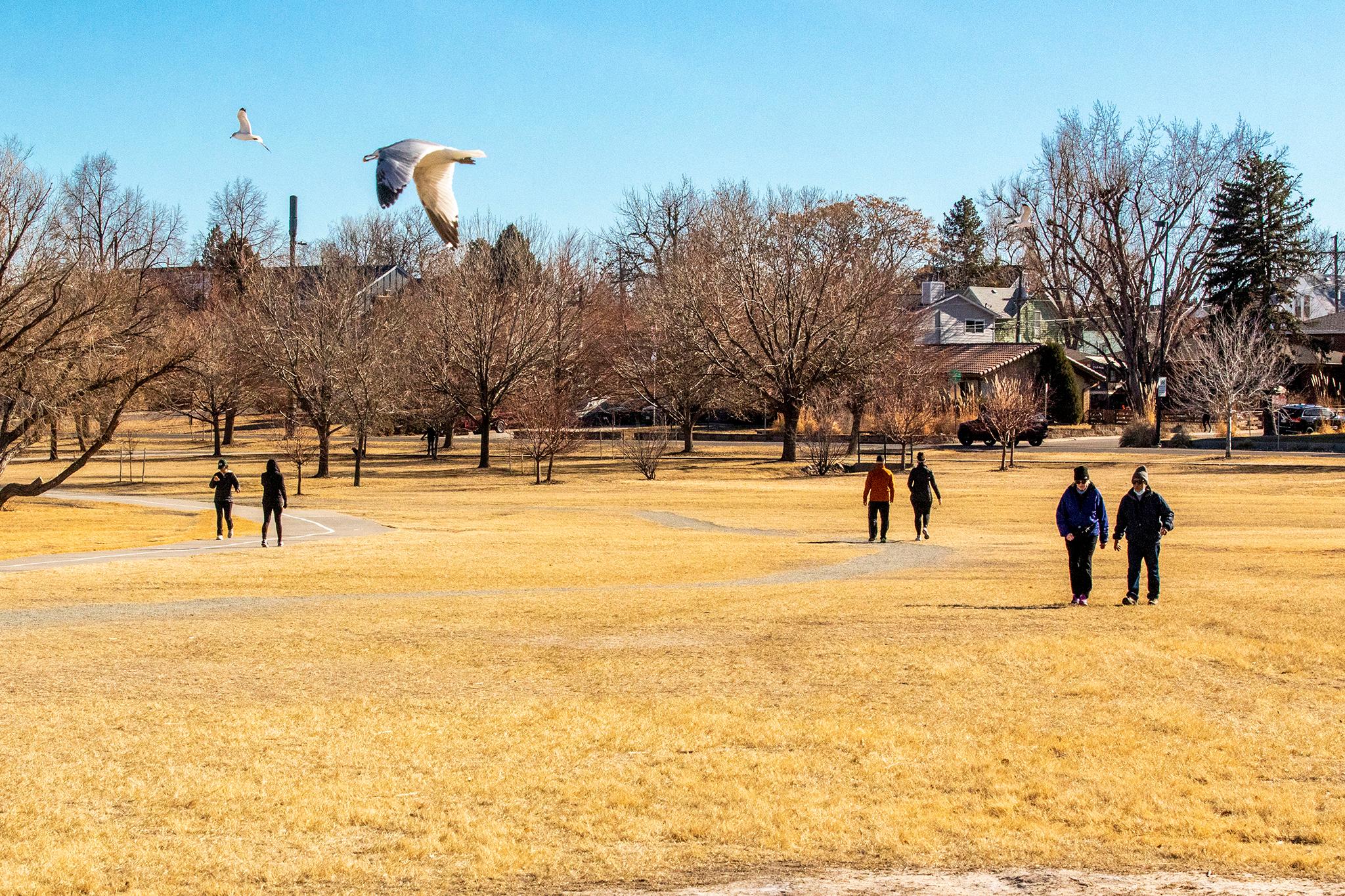
Scott Gilmore, DPR's deputy executive director, acknowledges that the department has been slow on accommodating the pickleball community, and said the department was working on providing new courts.
But pickleball has a noise problem and presents other conflicts at the parks, he added.
At Congress Park, Gilmore said the agency and Denver Department of Public Health & Environment have received complaints regarding parking concerns, pickleball players using the tennis courts, which don't have sound mitigations and, most importantly, noise complaints.
Going back to October, DDPHE received several complaints from nearby residents and conducted sound tests, finding that the noise level would go above the allowed 55-decibel level, according to the city's ordinance. A normal conversation, for example, can range between 60-70 decibels.
One solution to the sound complaint was to move the courts at Congress Park further into the park. DPR already had plans to close the courts due to asbestos abatement, so moving them altogether would add new courts and eliminate the noise.
To solve the overall lack of courts, DPR also planned to add four courts to Sloan's Lake as part of their park improvement plan.
But on April 3, all of that changed.
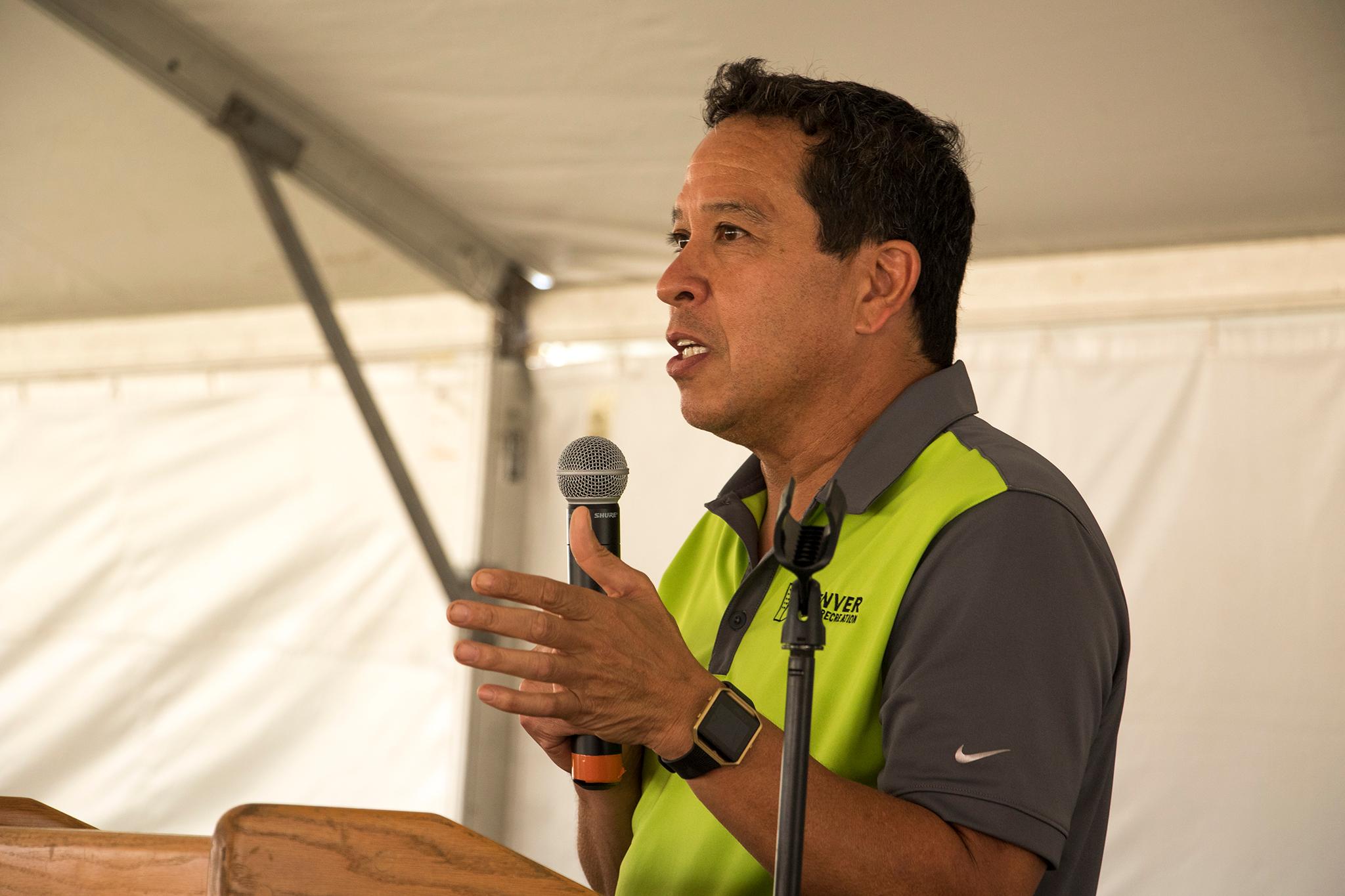
Gilmore first told 9News that the courts at Sloan's Lake would not be built and pickleball would not return to Congress Park after the asbestos abatement because ultimately the noise is too big of a problem.
Gilmore initially said any new court must be built more than 500 feet away from residential homes to avoid any noise complaints. He later said the minimum would be 350 feet. At Congress Park the new courts would be 300 feet away from residents and at Sloan's Lake, the courts were only 100 feet away from residents.
"We need to build courts in a location that minimizes conflict, not create conflict," Gilmore previously said. "The pickleball activity in [Congress Park] is negatively impacting others...We as parks departments across this country need to minimize that conflict, not increase that conflict by adding pickleball courts where they really shouldn't be. That goes with anything. You look at athletic fields. You don't just drop an athletic field in the middle of a neighborhood with lights because those lights can negatively impact people's quality of life."
Hoskins said she's representing more than 7,000 pickleball players across the city, including the 1,400 members of the Congress Park Pickleball Club and 600 players in the Central Park Pickleball Club.
She said players acknowledge that the thwack of the tiny ball is loud but the closing of Congress Park courts and the nixed plans for Sloan's Lake was an "arbitrary and capricious decision" made by Gilmore and DPR.
Hoskins said players learned of the decision to completely remove pickleball from Congress Park the day Gilmore told 9News. Hoskins argues that this violates proper notification and hearing ordinances within Denver's Municipal Code.
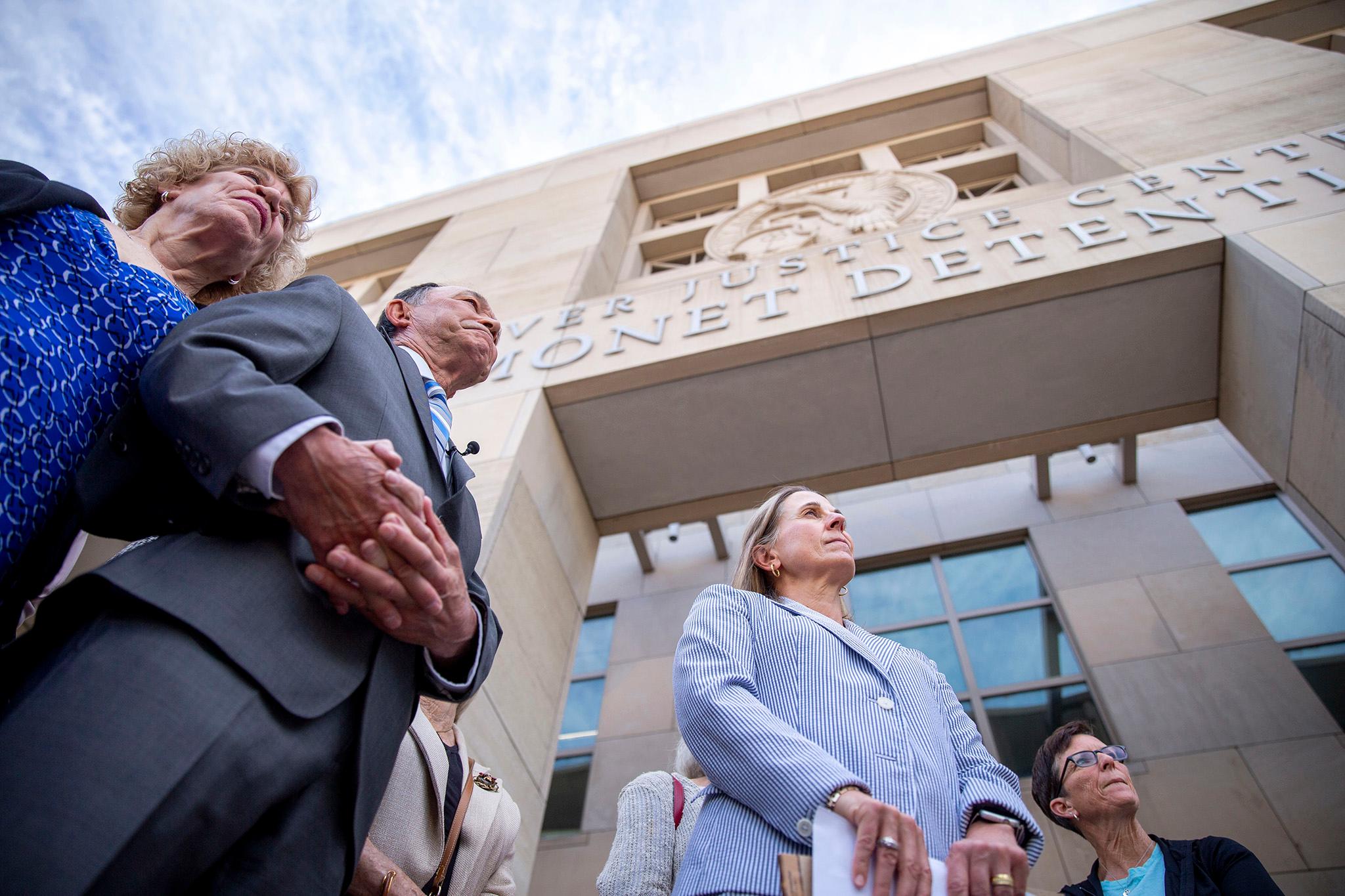
In Chapter 39 of the code, which focuses on Parks and Rec, Hoskins said before a rule amendment is set, DPR must bring the plan to the board, the board provides a comment and a public hearing is set.
However, if "the manager", Gilmore in this case, deems the amendment an immediate public health issue, a temporary directive can be issued, which Gilmore did with the court closings.
The code says the directive can't be in effect for more than 180 days.
Hoskins said Parks and Rec may argue that it was well within their rights to close the courts at Congress Park and nix the courts at Sloan's Lake, but the temporary directive was an ulterior move, considering Parks and Rec knew it was making that decision prior to telling 9News.
"They knew they were going to make the decision and they decided to design a media campaign of fabricated information and disinformation to announce a temporary directive," Hoskins said. "It's an arbitrary and capricious unreasonable unilateral decision. I'm asking the board who oversees the department to intervene."
Gilmore said the decision wasn't made without thought. For some time, Gilmore said the department has been thinking of ways to solve issues stemming from the pickleball community, including disputes with other park guests, the noise complaints and there was also the arrest of Arslan Guney, a 71-year-old man accused of criminal mischief after drawing boxes on the Central Park rec center court floor with permanent marker indicating where pickleball boundaries should be placed.
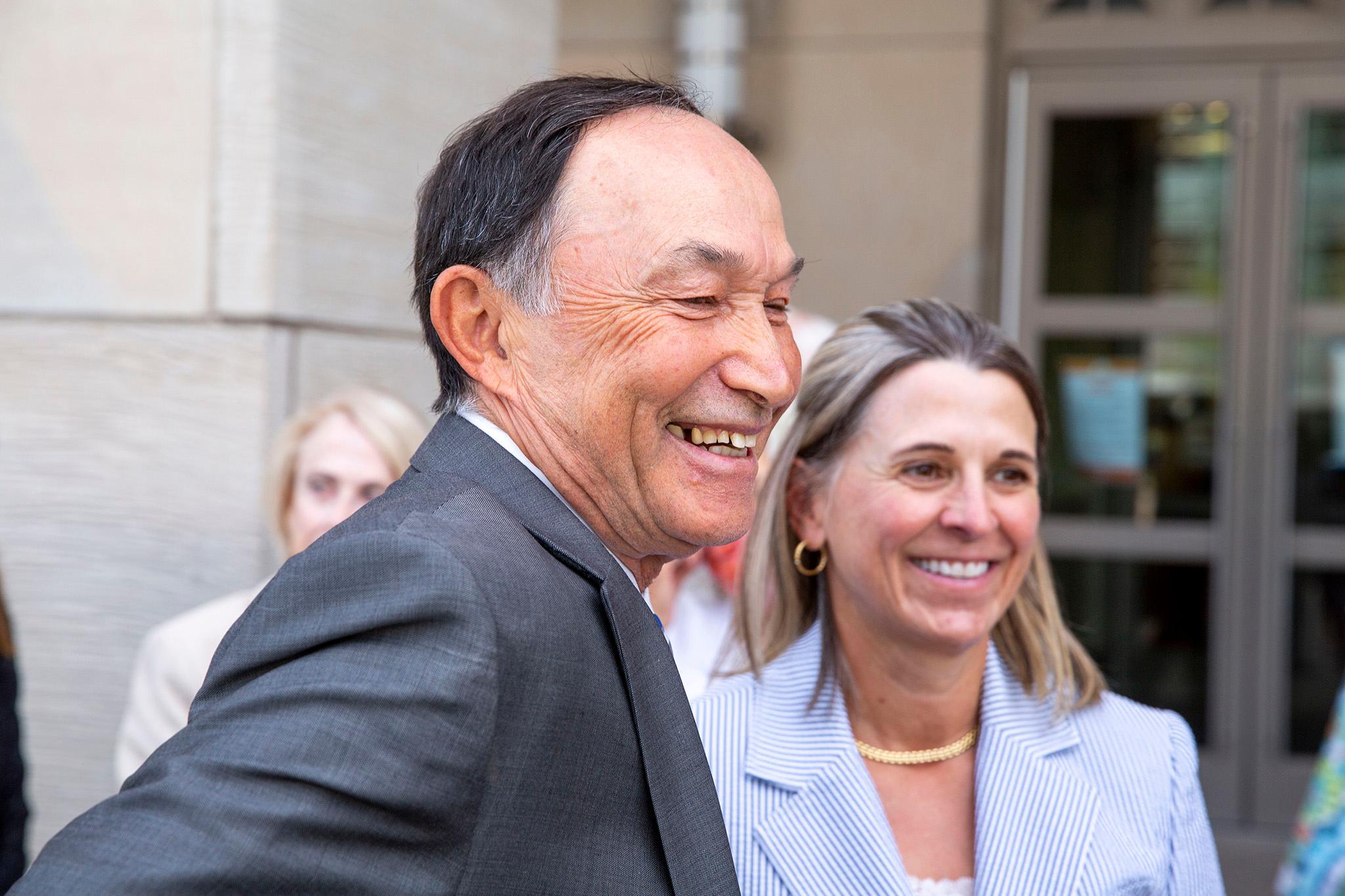
Hoskins is also arguing that the Denver Department of Public Health & Environment never agreed to the 350-feet distance minimum for new courts from residential homes.
In emails between Gilmore and several DDPHE members, including the agency's director Danica Lee, Gilmore said he was contacting DDPHE to "get some recommendations" that would "support" their decision to close the courts.
Lee and several other DDPHE members said the initial 500ft requirement was an "extremely rough approximation" and they were not "comfortable" with that being a standard. Lee added that a sound study would need to be conducted for each site and that they couldn't "rely upon a single number for all sites and should exercise caution when talking about this."
The second portion of Hoskins' appeal brings to question Gilmore's marital relationship with Councilmember Stacie Gilmore and Gilmore's brother's construction company Gilmore Construction, which has received city contracts. On Gilmore Construction's most recent bid for their work at the airport, Councilmember Gilmore abstained from voting.
She wants the board to look into their relationships, a topic that's been brought up in the past.
Hoskins said she submitted the appeal to the board Monday. She's hoping to be placed on the agenda for the board's monthly meeting on Wednesday. If not, the board meeting allows public comment, in which she will take the time to present the appeal.
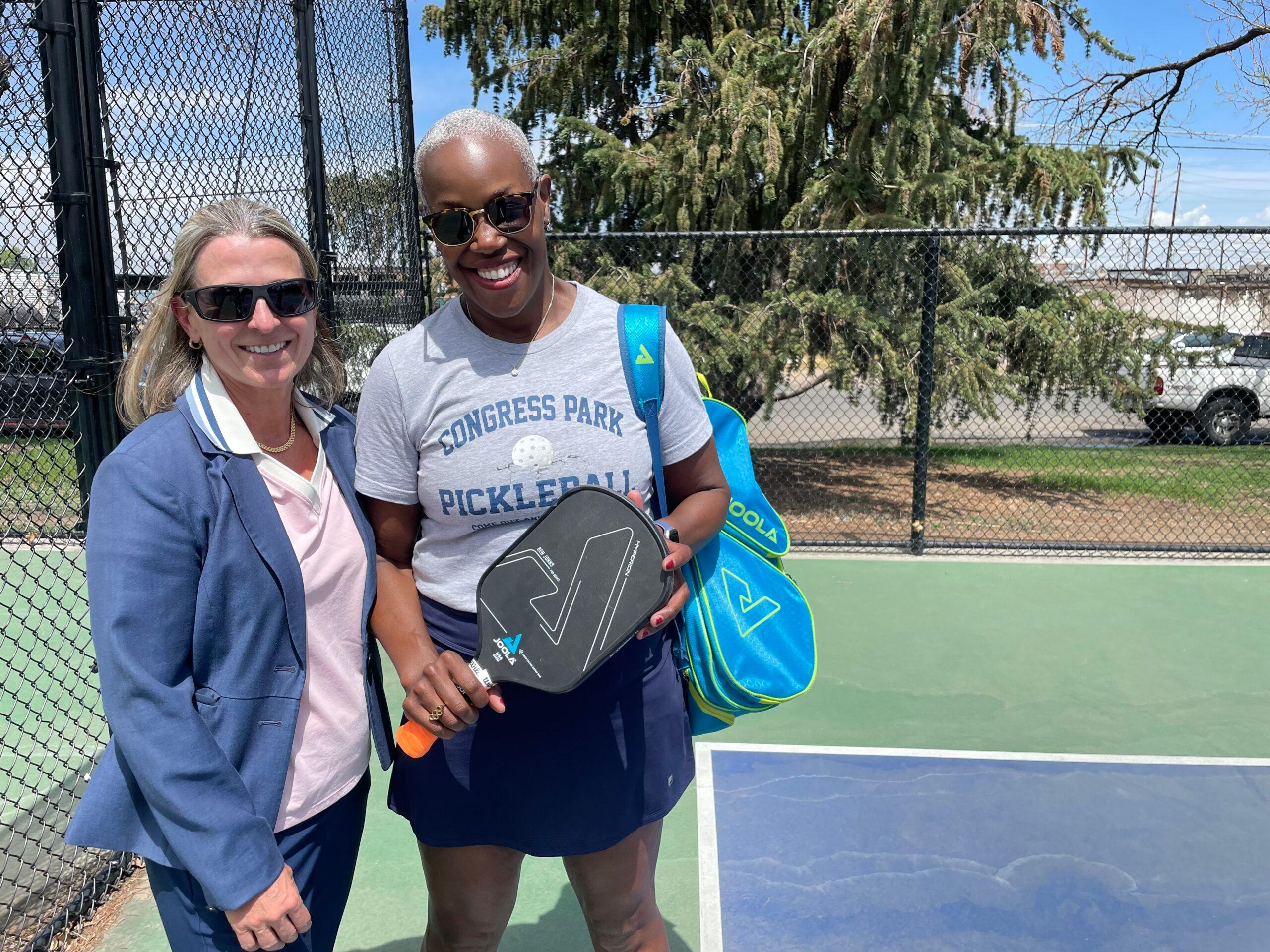
The appeal is requesting that there be a special hearing on the court closures as well as Gilmore's conflict of interests. Ultimately, Hoskins said she and the pickleball community hopes this appeal opens up the conversation and allows players to be involved in discussion.
"Everybody wants the resource and Denver Parks and Rec has not listened," Hoskins said. This is an important issue...It's important for the citizens to have a voice...I hope this advisory board will step in and really help us reach reasonable solutions for all of Denver...We just want a seat at the table."
Parks and Rec spokesperson Cyndi Karvaski said the department received a copy of the appeal this morning. Karvaski said the board doesn't have the "ability to change operational decisions" though they can make recommendations. The decision to move forward with any public hearings would be decided by the board.
Karvaski added that DPR created a pickleball planning and advisory group that would work on where new pickleball courts will be placed and how the agency will handle pickleball issues. Some new locations for pickleball courts have been CJ Burns Park at Colorado Boulevard and Alameda Avenue or areas of Central Park or Bear Valley.


